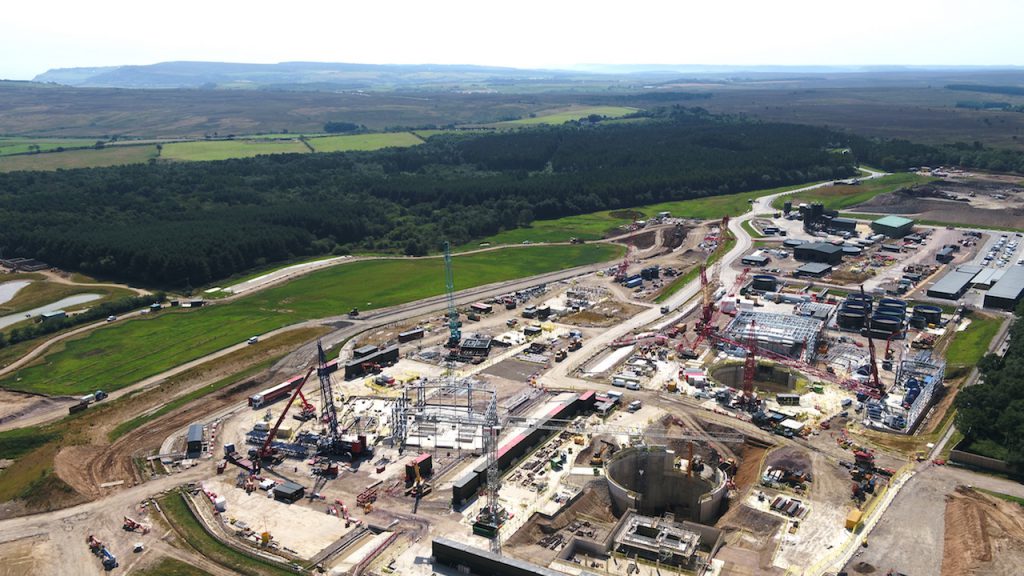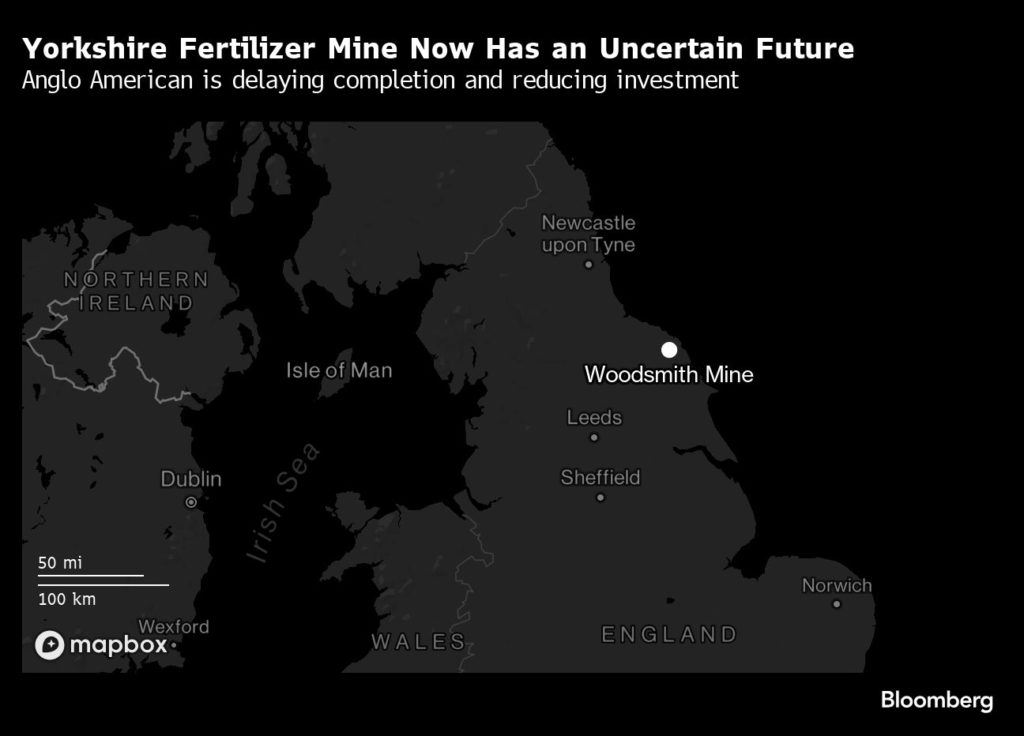Anglo American’s battle with BHP worries a corner of England

Deep under the rolling moors of northern England, an enormous tunneling machine eats slowly into the earth, grinding stone and soil into dust. How long it continues now depends on wrangling between two giants of the mining world.
The Woodsmith fertilizer mine and surrounding area in Yorkshire have found themselves in the middle of one of the biggest takeover battles of recent years involving a British company: BHP Group Ltd.’s attempted purchase of rival Anglo American Plc. And whoever ends up prevailing, the $9 billion project already looks like collateral damage.
After rejecting BHP’s overtures, Anglo has been under pressure to slash costs and slim down its sprawling portfolio to keep its shareholders onside. The miner said this week it will scale back the amount of money it plans to spend on the Yorkshire mine, which employs about 2,000 people adjacent to an area with some of the UK’s highest unemployment.
The project faces just as much uncertainty if BHP succeeds with its £34 billion ($43 billion) approach. The Australian company is already building its own giant fertilizer facility in Canada to the tune of more than $10 billion.
“It’s very worrying,” said Neil Swannick, a local councilor who along with his colleagues is in a liaison group with Anglo. “The mine was going to bring wealth and economic activity to the area, which is historically a low pay area.”
A spokesperson for Anglo said it’s early days and it’s not clear how many jobs are in jeopardy, 1,400 of which are in the local community. The company is working out the full details of what the slow down at the mine means.
There’s no doubt that Woodsmith is staggeringly expensive. Anglo has been spending about $1 billion a year on it. Capital expenditure will now be cut to about $200 million next year, and nothing in 2026, as it looks for outside partners to invest. The mine was due to open in 2027. That’s now been pushed back indefinitely.

Anglo’s purchase of the polyhalite fertilizer site in 2020 was a cause for celebration in this remote part of Yorkshire after the previous owner ran out of cash. The miner offered high paying jobs, poured millions into local causes and ran a slick PR campaign.
In return, the company earned the enthusiastic backing of the community, which includes the picture-postcard North Sea fishing town of Whitby and a number of small villages scattered across the moors.
For local people who were excited about the windfall the mega-project would bring, the pullback has been gut-wrenching.
Indeed, 2,000 jobs go a long way in this part of the world. Whitby relies on tourism, whose jobs are seasonal and tend to pay less. About 30 miles (48 kilometers) away lie Middlesbrough and Redcar, towns once associated with the steel industry and now poster children for deprivation.
The northeast region had the lowest employment rate in the UK in the three months ending March 2024, at 69%, according to the Office for National Statistics.
One local business owner who declined to be identified said the area is “gutted” by the news. He has many friends who work at the mine, which lifted the area because its salaries gave people greater disposable income.
“That mine was very important for our area,” said Jane Thomas, who runs a bed-and-breakfast in Robin Hood Bay, close to the mine site. “Most of the work here is seasonal, it’s hospitality, tourism.”
For hikers on the Yorkshire moors, there’s nothing to suggest they’re walking over a vast mining project. From the distance, the only hint as to what lies below is a tall hut in a clearing, a sort of oversized barn jutting through the heather-clad moorland.
Whether the Woodsmith mine will be completed is still unclear. Once operational, the polyhalite, a relatively obscure form of fertilizer, would then be sent through the country’s longest tunnel to Teesside on the North Sea coast.
The material would then be processed in a facility in the Teesside Freeport, a free-trade zone and key project of the UK’s governing Conservative Party, which has made “levelling up” poorer regions a flagship policy.
Robert Goodwill, the local Conservative member of parliament, said he received assurances that Anglo will keep the project ticking along so it can resume at some point. The aim is to keep it viable, he said, though the future remains worrying.
“It’s very disappointing,” Goodwill said. “There’s a lot of local jobs, young people starting apprenticeships. We were told these would be secure jobs for 100 years.”
(By Jack Ryan)
{{ commodity.name }}
{{ post.title }}
{{ post.date }}




Comments